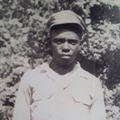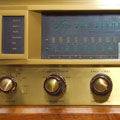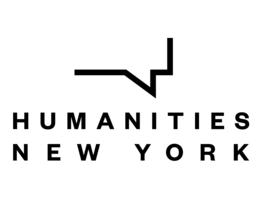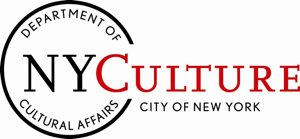A Real Life West Side Story
Joe Richman, host: From PRX’s Radiotopia. This is Radio Diaries. I’m Joe Richman.
A new movie version of West Side Story is hitting theaters this week. The musical, which tells a story of romance and rivalry between white and Puerto Rican gangs first opened on Broadway in 1957. It was adapted for the screen in 1961.
Archival audio: “America” by Leonard Bernstein
Leonard Bernstein composed the music and Stephen Sondheim, who died last month, wrote the lyrics.
Archival Audio: “America” by Leonard Bernstein
Joe: It was a huge hit. Though over the years, some people have criticized West Side Story’s depiction of Puerto Rican life in New York City…
Archival Audio: “America” by Leonard Bernstein
Joe: The musical originally was going to be called East Side Story and the conflict was going to be between Catholics and Jews, but it was changed to reflect ethnic tensions that were brewing in New York’s neighborhoods in the 1950s.
Archival audio: West Side Story
Joe: The story of warring youth gangs turned out to be prophetic: just a month before the musical opened, the city was stunned by the brutal murder of a teenager from Washington Heights named Michael Farmer. Today on the podcast, a real life West Side Story.
Archival audio: Jet Song by Leonard Bernstein
Dr. Lewis Yablonsky: West Side Story was to me and people who were really working with gangs, kind of a joke. It had nothing to do with the gangs that I saw. First of all, these kids couldn’t dance.
Archival audio: Jet Song by Leonard Bernstein
Yablonsky: My name is Dr. Lewis Yablonsky. In the 1950s, I was working with gangs in New York when the Michael Farmer murder occurred.
Raymond Farmer: My name is Raymond Farmer and I’m the younger brother of Michael Farmera. When Michael was killed, he was 15 and I was 13. Even though it’s 50 years later, memories come back that you think you put behind you and forgot about.
Archival audio: Commissioner Kennedy, do you believe that juvenile crime is worsening here in the city of New York? Well, in addition to the statistics, it’s my personal opinion that the viciousness of the crimes, as you put it, is worsening.
Yablonsky: In the summer of 1957, we had 11 murders carried out by around a dozen gangs in the area on the upper west side of Manhattan.
And we could see that a crime of epic proportions was building.
Archival audio: This is Ed Murrow. Boys, troubled and adrift in the community, formed the gang that killed Michael Farmer. They exist in most of our large cities.
Yablonsky: Edward R Murrow became interested in the crime because it was representative of a lot of gang murders that were taking place around the United States and he contacted me.
Archival audio: Dr. Jablonski tape recorded some of his conversations with these boys. The conversation you’re about to hear is ominous in view of what was to happen later. This gang member feared he would commit a murder. Well, you think you’re going to shoot someone? Shoot ‘em, stab ‘em or strangle ‘em.
Yablonsky: I had a reel to reel tape recorder and they loved to come to my office, some of them, and put all kinds of stuff on tape and enjoyed hearing their voices played back. So, the tape recorder was always sitting there.
Archival audio: So, you want me to see that psychiatrist or whatever he is? I’d like you to. We can probably meet Monday.
Yablonsky: But we were attempting to get the city more involved in the positive programs that we were developing and obviously we failed.
Archival audio: Michael died on the night of July 30th, 1957. More is involved here than one act of violence committed on one summer night. The roots of this crime go back a long ways.
Rob Snyder: In retrospect, people think of the fifties as a peaceful time, but in New York City, during the 1950s, the city was an absolute transformation.
Snyder: My name is Rob Snyder. I’m a historian and a journalism professor at Rutgers Newark. Where Michael Farmer lived was a neighborhood that had once been defined by an Irish and Jewish presence. But with more and more black and Hispanic people moving in into the Southern part of Washington Heights, there was suddenly, in neighborhoods, large groups of people that nobody had shared the neighborhood with before.
Nicky Cruz: My name is Nicky Cruz, and I was a warlord of a gang called the Madhouse. My neighborhood was black and Puerto Ricans. And everything was divided by turf. You feel comfortable when you’re with your own people, but when you cross the neighborhood, your life was in danger. Many times it was necessary that you join a gang for protection.
Cruz: And that became very dangerous because you’re dealing with a lot of kids my age that is like a pack of wolves.
Snyder: We weren’t geared to have problems with color, but things were changing and you were uncomfortable unless you were in your own neighborhood.
Archival audio: By the summer of 1957, the gang was feuding with the Jesters, predominantly an Irish gang in Michael Farmers’ neighborhood.
Several Egyptian Kings and Dragons claimed they often saw him with the Jesters and assumed he was a member. The Jesters say neither Farmer nor McShane belong to their gang.
Raymond Farmer: We weren’t members of the gang but they were all friends of ours and they took care of us. I was basically too young. Michael was in that age, you know, 15 going on 16, with probably he would have been a member except he wasn’t perfect.
He had polio. He couldn’t run. So he spent a lot of time in the water. The pool would close and we jumped the fence and swimming pool at night.
Snyder: Highbridge Pool was a big, beautiful municipal pool on the Eastern side of Washington Heights, mostly a white neighborhood, and kids from Harlem, kids from Southern Washington Heights wanted to use that pool.
Snyder: Sometimes they could get in, but often they were harassed on the streets, leading up to the pool. The dragons and the Egyptian Kings felt that they had to retaliate for the insults they’d experienced, trying to use Highbridge Pool.
Archival audio: On this steaming summer evening in New York City, the Egyptian Kings and Dragons gang began to assemble.
They met outside the neighborhood, hangout, a candy store at the 152nd Street and Broadway in Manhattan’s Upper West Side. They called each other by their nicknames: Magician, Big Man, Little King, Bopple. They walked uptown toward the neighborhood of the rival gang, the Jesters. They came prepared for a fight.
Yablonsky: The night of the Egyptian king gang killing McShane and farmer. It was a hot night and they went to the pool to do some swimming.
Archival audio: It was 10:30 when we entered the park. We looked up and it was to the gang members on top of the stairs. And they had Garrison belts wrapped around their hands. I saw the main body of the gang slowly walk out of the bushes.
I turned around fast to see what Michael was going to do. And this kid came running at me with a belt. Then I ran myself and told Michael to run.
Yablonsky: Roger McShane was kicked around and they had chains and knives. And one of the guys had a machete and they were gonna really whack them. And McShane later told me that he heard one of the guys said, “Ah, we screwed him up enough, leave him alone.”
Yablonsky: So he survived. Michael Farmer had numerous stab wounds. And I remember one kid saying, “I couldn’t get near him. So finally I got to kick him. That was the least I could do was kick him.” It was contagious.
Archival audio: Everybody’s kicking, stomping, punching, stabbing. And he tried to get back up and I knocked him down again.
Archival audio: They patrolman rushed to the park where they found the Farmer boy, just before 11:00 PM. He was lying on the ground, off the foot path and moaning in pain. The Farmer boy told him, “The Egyptian Kings got me.”
Raymond Farmer: We got the phone call. I believe my mother picked up the phone and they said, “Your son has been assaulted.” That you got to get here right away. They left right away, went to the hospital. And he was dead by the time they got there.
Snyder: After the assaults, the Dragons and Kings fled back south to the neighborhoods that had come from, went to bed and wondered what was coming next. A lot of them woke up to knocks on the door from the police first thing in the morning.
Archival audio: All of the young men arrested, made full admissions to the police officers…
Yablonsky: Ultimately there were 18 defendants, 11 of them were juveniles. They were under sixteen.
Archival audio: Many of their parents came to the scene. They expressed shock and disbelief over the fact that their boys might’ve had a part in this hideous crime.
Cruz: You have to be stupid if you didn’t pay no attention, Michael Farmer’s story hit like a bomb that stir up lot of questions in the city of New York.
Archival audio: Does New York City need a curfew? Has your street club program proved effective? Is more police the answer to a cure for juvenile delinquency?
Archival audio: We must remember that 96 or 97% of families and kids are perfectly all right in this city. And the glamour is given to the dramatic tragedies that happen and everybody forgets about all the good things that are going on…
Snyder: In the trial that followed the Farmer killing, at the beginning, there was a real chance that these young people could go to the electric chair. The New York Times called it the largest first-degree murder trial in the history of New York.
Archival audio: We found Louis Alvarez and Charles Horton guilty of murder in the second degree.
Yablonsky: Quite a few of them were juveniles and they did short stretches of maybe two to three years in the reformatory.
Yablonsky: The seven older guys, 16 and older, they were up to 22 or 23, received 10 years to 20 years.
Cruz: It was a wake up call to all of us that we must do something to prevent worse thing for the future. The city of New York, they try. I have to be honest on that.
Archival audio: So our technique has been rather than repressing these gangs to establish contact with them and gradually convert their antisocial activities into socially acceptable activities.
Cruz: They opened clubs so they can take the gangs away from the street. And then give you a social worker. And he used to take us to many places to try to educate us about the Statue of Liberty, Central Park, the zoo.. I began to understand how bad I was, how screwed up I was. Education has a lot to do in changing your way of life.
Snyder: I think New Yorkers in 1957 were poised between denial and waking up to a problem. The columnist who I think provided the best analysis of the case, Murray Kempton, expressed a fear that New Yorkers had not learned very much from the death of Michael Farmer.
Actor reading of Murray Kempton column: What Michael Farmer deserved was not vengeance, but the risen conscience. When will we ever be tired of such things happening to children and ourselves unchanged by their happening. Highbridge Pool was not just last July 30th. It is tomorrow. It is, I’m very much afraid, as long as we live. We will be back there very soon, unchanged. A column by Murray Kempton in the New York Post.
Yablonsky: I don’t know exactly what happened to the 18 guys who were involved in that, but I got into contact with someone just recently who was there at that time, pretty heavily involved in the murder.
Actor reading anonymous’ note: I do not want to be interviewed or have my name used but I’ve agreed to have someone read my words. At the time of the attack, I was 13 years old. It took me 35 years from the day of the incident to realize what a loss like that means. My biological son is 17 now. When he turned 15, I remember Michael Farmer and I cry for days.
Actor reading anonymous’ note: 24 years ago, I began a new life. The journey was slow and painful. I hurt so many people, including myself. Today, I make amends anonymously and I feel God has given me this chance and I don’t want to throw it away.
Raymond Farmer: I’ve tried to figure that out for 50 years. I still have never been able to figure out why. Kids killing kids shouldn’t happen. 50 years ago. Today. Should never happen.








